Most noteworthy in recent decades in studies on politics and public affairs have shifted from the early model of democracy defined by hegemony, conceptual innovations and ideological discourses to the modern ideal that focuses on good governance, transparency, accountability, and legitimacy that are manifested at various levels of governance during socioeconomic transformation and political transition or even its collapse, when the form of governance promoted is more democratic than the status quo.
Overall, our studies support that well-informed citizens are crucial for a functioning democracy since they also help stabilize it.
Fortunately, the now-booming researches on the consequences of democracy have gradually shifted the focus toward human capital and development so that the people may become economically and socially independent and practice their citizenship rights free from political interferences. Overall, our studies support that well-informed citizens are crucial for a functioning democracy since they also help stabilize it. Briefly put, there is a keen awareness about the critical role of political leadership and political activation of the ordinary citizens’ values while designing the public policies much more sympathetically to gain real political traction and to introduce broad egalitarian values with equal rights and privileges.
Again, there is a growing movement for democracy that Harold Laswell brilliantly termed as ‘who gets what, when and how’ politics, which regards the forms of governance based on the popular conceptions of democracy through which genuinely liberal values and egalitarian practices that relate to the level of popular demand are established and the political system itself succeeds in promoting universally compatible rapid economic growth besides the significant social development with a focus on the people’s satisfaction with democracy and their approval of government performance. (Zhai 2019)
Expectations and hypotheses
We know that democracy will not come without a cost. On the other hand, according to some scholars (Crawford 2003), the individual character of society helps determine the ultimate impact that develops new forms of socioeconomic and political controls to devise novel forms of strategies for survival. There is, however, no super-natural or God-given framework, nor naturally evolved single bullet solution, nor pundits’ prescription for a foolproof constitutional setting to mitigate long-term problems; yet there is no question but political structures are relied upon to have a major impact on achieving long-range goals and determining public policy initiatives to have long-term consequences toward economic development.
In particular, a dispersed political authority is a necessary condition in order to deliver prosperity and sustain democracy, and therefore, it should not be read to imply having emerged from the international political context that resulted from the end of Cold War. Unfortunately, there is little consensus on what should be a valid governing process that provides the mechanism in which the citizens may communicate information about their interests and preferences, where they may also evaluate how democracy works in the light of civic engagement to generate pressure to respond on appreciation of political reforms, government responsibility, and honesty, integrity, and accountability of the people’s representatives.
Yet another danger to democracy was signaled by Tocqueville that develops from the bureaucratic rules of grandmasters who leave no choice other than their own prescriptions.
While there may not be a single path in the country’s democratization process or even worst practices what is implied in practice is that institutional structure and development will be heavily impacted by social structure, culture, and other variables generate a more critical evaluation of the degree of democracy leading to measurable improvements in performance. (Harrison and Huntington 2000) Indeed, American philosopher Fukuyama (1992) fired an intellectual bullet while declaring the ‘end of history’ in 1990 that indeed seemed bringing halt to the hazardous forms of authoritarian regimes and the attraction and the rapid growth of newly emerged democratic regimes that make up the liberal democratic system along with the reshaping of politics that William Thompson termed as the expansion of the global political system through the conditions for realization of democracy, viz. rule of law, good governance and inclusive political system due to which a broad range of civic activities may emerge with high levels of civic engagement to promote popular control of government.
Besides, the regularly held elections should provide for the peaceful acquisition and transfer of power and all other interrelated virtues that encourage the citizens to make judgments about the performance of the governing regime. We shall endeavor to present a general picture before looking at the results in terms of the net effect.
We will begin with the proposition that politics is not a dirty game after all; although one of the classic dangers of democracy, according to Plato, is due to the citizens’ tendency to mindlessly opt for a popular savior who invariably turns out to become a tyrant. Yet another danger to democracy was signaled by Tocqueville that develops from the bureaucratic rules of grandmasters who leave no choice other than their own prescriptions.
A third danger to democracy, which seems prominent now in Nepal, is due to some sections of the people who criticize the political process as dull and dirty and are eager to revive the dead-horse with the self-supporting principles. In fact, they are just misrepresenting the nature of democratic politics by generating a dangerous political dynamic; there are no long-term implications for redistribution of benefits to the people.
(To be continued…)
Views expressed in this article are the author’s own and do not necessarily reflect the stance of Khabarhub.


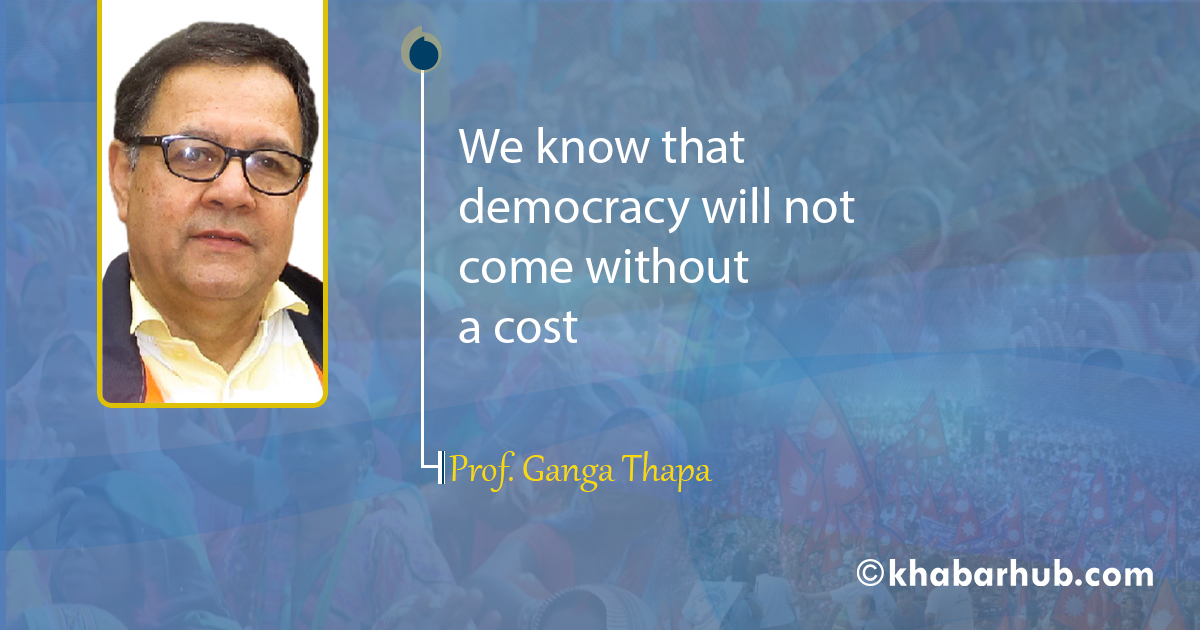

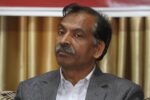
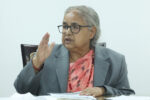
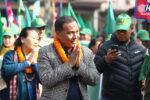
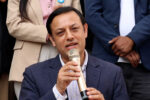

Comment